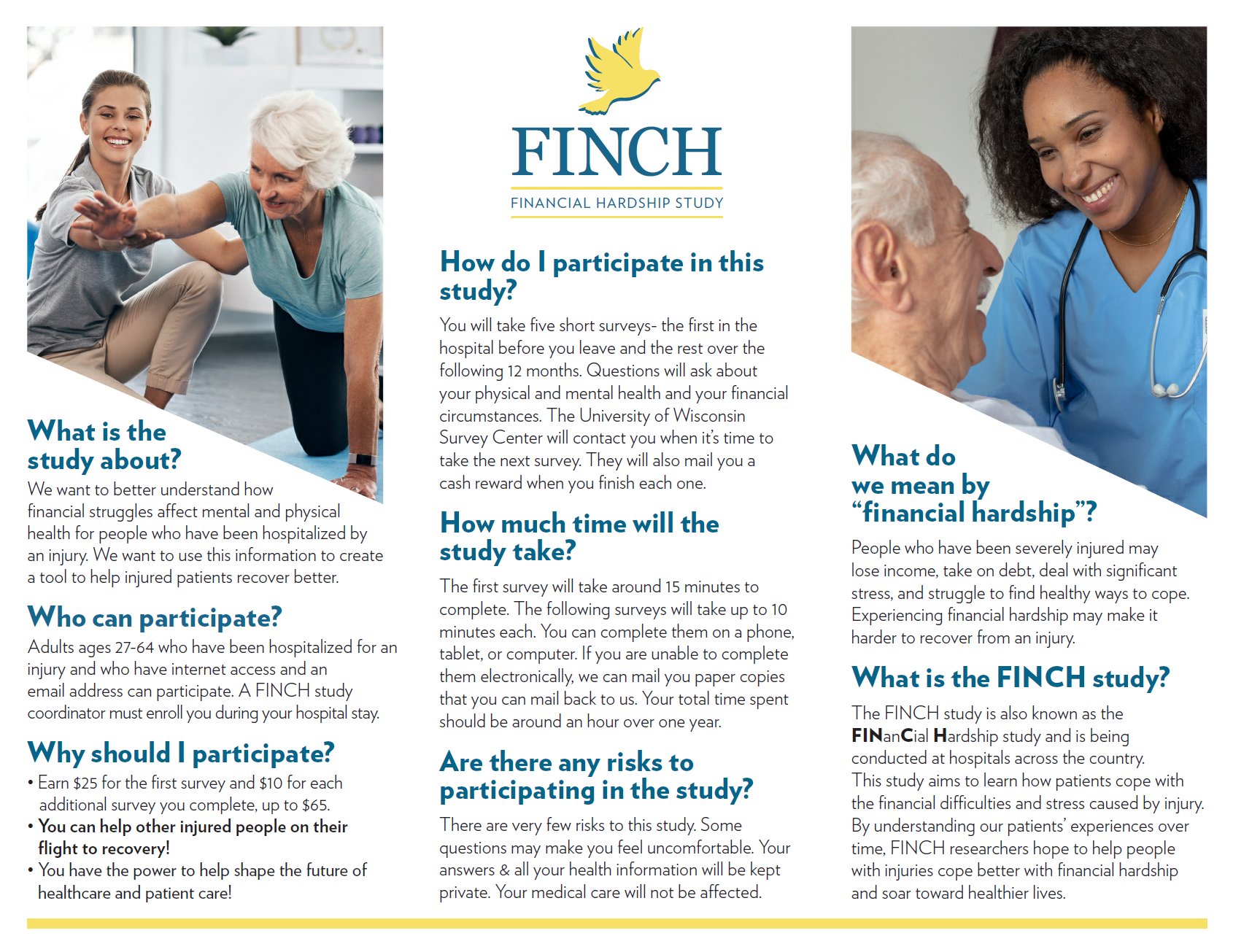Elderly Trauma Medical Home
This is a multi-site randomized clinical trial conducted by the trauma surgeons at the Indiana University Department of Surgery as well as members of the Department of Medicine. UW is a participating site. The purpose of this study is to determine if a type of intervention that incorporates multiple aspects of recovery can be used as a “recovery model” in the future to help older subjects recuperate both physically and mentally or at least help to slow down or minimize any long term effects from the injury.
Up to 430 participants will be randomized into one of two treatment groups: the control group “Usual Care” and the intervention group. Patients in the intervention group will follow up with the Trauma Medical Home Care Coordinator RN (CC) after discharging from the hospital. After performing some baseline assessments, the CC will work with the study team and patients’ PCPs to finalize a care plan and then work with a study patient to implement that plan over the next six months. All study patients will complete interviews with validated QoL and functional assessment surveys at baseline, six months and one year. Funding for this study is provided by the National Institutes for Health.
Financial Hardship Cohort (FINCH) Study
This is a prospective, longitudinal survey study to understand the experience of patients undergoing treatment of moderate injury and their thoughts about their finances and quality of life. We are doing this research because injury is a public health problem which contributes to reduction of quality of life and is costly to the United States economy. We believe our findings will help improve the quality of life and overall health of injury survivors. A total of about 550 people will participate in this study. UW Hospital patients with moderate to severe injury will complete 5 – 10 minute surveys at time of admission for injury and one, two, four, six and 12 months after injury. The survey includes questions about the patient’s injury, QoL, social support, coping behaviors, mental and physical health, financial well-being, medical history and other demographics. Funding for this study is provided by the National Institutes for Health.

